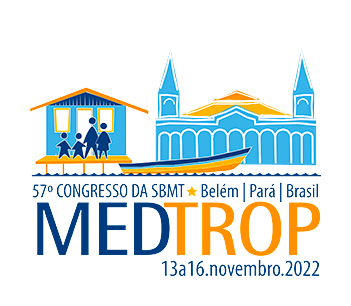Dados do Trabalho
Título
Effects of temperature on Rhodnius prolixus and it's infection by Trypanosoma cruzi
Introdução
Chagas disease, caused by the protozoan parasite Trypanosoma cruzi, is the main neglected vector borne illness in terms of public health burden in the Latin American region (Hotez et al. 2008), affecting ca. 8 million people. It is transmitted by kissing bugs of the Triatominae sub-family.
Temperature is the main abiotic factor impacting the life and ecology of insects as they are ectotherms. This means that global warming will have a considerable effect on these invertebrates. A few studies have investigated the influence of temperature on the relationship between Rhodnius prolixus and Trypanosoma cruzi. These studies have found that temperature affects the outcome of the infection (Elliot et al. 2015, Rodriguez et al. 2016) as well as the behavior of the insect (Brito et al. 2017, Hinestroza et al. 2016).
In our project we aim at understanding how temperature affects the parasite, the vector, and the relationship between them by investigating the effects of temperature rise on the infection dynamics and fitness costs of infection.
Objetivo(s)
a. Rhodnius prolixus
We investigated the differences in survival, moulting time, moulting success, weight and urine production of infected bugs at 4 temperatures, compared to uninfected ones.
b. Trypanosoma cruzi
We investigated the differences in infection success, time taken to reach the rectal cavity and infection severity at our 4 temperatures.
Material e Métodos
We placed infected and uninfected R. prolixus bugs in a device where we were able to control the temperature precisely. They stayed at our 4 temperatures for their entire lifetime. We monitored their survival, moulting success, moulting time, weight, size, parasite load and urine production, as these are all relevant indicators of fitness. We then compared our groups factoring in both temperature and status of infection. This allowed us to gain a lot of information on the effect of temperature on uninfected and infected individuals and the differences between these two groups.
Resultados e Conclusão
We reveal the first description of the evolution of infection over the entire life o the insect, as well as the first growth curve of R. prolixus followin individual insects. We have showed that our protocol was able to maintain infection of 100% of insects infected at first instar up until adult stage. We have also showed significant effects of temperature and infection on moulting time and weight.
Palavras-chave
Global warming, disease vector ecology, thermobiology
Área
Eixo 04 | Entomologia / Controle de Vetores
Categoria
(Concorra com apenas um trabalho) Concorrer ao Prêmio Jovem Pesquisador - Doutorado
Autores
Henri Loshouarn, Alessandra Aparecida Guarneri
